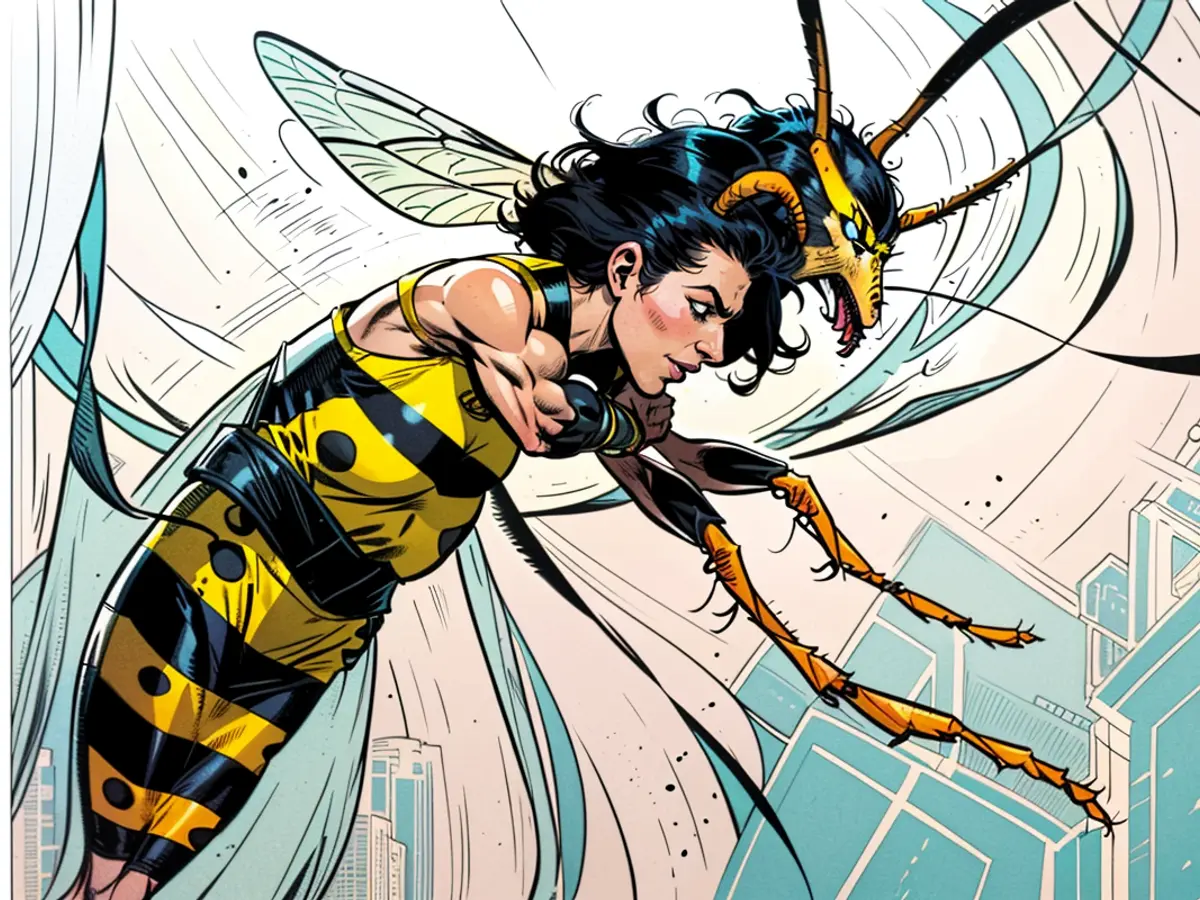Avoiding Missteps with Wasps: Essential Guidelines
Relaxed lunch on the balcony, ice cream from town, or a picnic in nature: During summer, wasps are everywhere. With their black and yellow bodies, they're buzzing around any food or sweet drinks, and can really put a damper on the party. But to avoid getting stung or pissing them off, here are some mistakes to avoid.
Don't show fear
It's common knowledge that moving around too much in their presence isn't great. But showing fear is also not a good idea. Wasps pick up on anxious reactions. Sweat, heavy breathing, and other signs of fear can set them off. Instead, observe them calmly and wait them out.
Don't blow them away
Swatting at wasps with aggressive blows usually doesn't end well. Instead, some people try to scare them off with their breath. But this often has the opposite effect, as the carbon dioxide in your breath only irks them more. If a wasp has already stung you, this can make the other ones more aggressive. This is because when a wasp is attacked, it releases an alarm pheromone.
Don't set up wasp traps
To keep the peace while eating, some people use so-called wasp traps. Wasps are lured to a different location with a sweet drink like beer or juice. But the German Nature Conservation Union advises against this. The trap actually attracts more animals, including hornets. And, unfortunately, the animals often drown in it.
Do not kill under any circumstances
Despite how annoying wasps may be, they're incredibly important for our ecosystem, and some species are endangered. Killing a wasp could violate the Federal Nature Conservation Act, which generally prohibits killing wild animals without a good reason. Certain species like the circle and knob-horned wasps have special protection. Wasp nests should also not be damaged or destroyed. Violating this can result in a fine of up to 50,000 euros.
Do not remove wasp nests alone
If you encounter a wasp nest in your own garden, don't touch it, no matter the size. The animals inside feel threatened and could attack immediately. Always hire a professional for removal. If the nest is in a little frequented place, it should be left there for the sake of the animals. In winter, the insects die anyway, only the queen survives and finds a new place the following summer. The abandoned nest can be easily removed and belongs in the compost or organic waste.
Don't reach for the onion first when stung
An onion may help alleviate the pain of a fresh sting, but only moderately. Instead, a so-called sting healer, an electric pen that treats the sting site with heat, works better. This also reduces itching. An antihistamine ointment is also recommended for initial treatment of a wasp sting. Only then should you apply the sliced onion to the affected area. It has an anti-inflammatory effect.
However, if the sting is on the neck or in the throat area, the airways can swell dangerously. Then, or if you have a known allergy to wasp venom, call the emergency doctor immediately.
Other animals, such as bees, might also be attracted to sweet foods or beeswax candles during the picnic. Regardless of other animals, it's essential to respect wasps and their habits to avoid any conflicts or stings.







